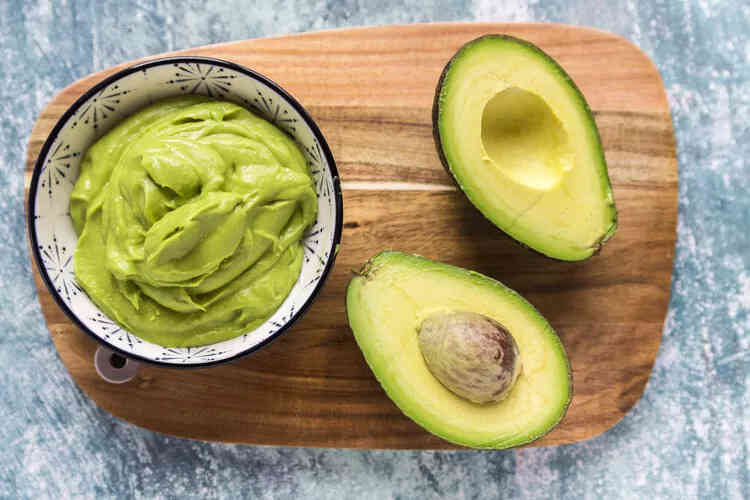In recent years, avocados have become increasingly popular in the health food industry. As with many popular health foods, dog owners want to know if it's good for their dogs too, especially since there may be conflicting information out there.

Do avocados have health benefits for dogs?
Avocados are known for being rich in so-called "good" fats. This is a fat that can lower a person’s cholesterol. They're not just packed with healthy fats, though. They are a good source of vitamins A, B3 (niacin), B9 (folate), B6 (pyridoxine), C and E. They are also rich in potassium, antioxidants, and easily digestible fiber. 1
As avocados become more popular as a human health food, some so-called BEG diet brands (i.e., boutique diets, exotic protein diets, and grain-free diets) have begun to incorporate avocado oil and/or avocado powder into their formulas as vitamins and Source of minerals.
Risks of Giving Your Dog Avocados
While a bit of avocado flesh is unlikely to be a problem for most dogs, there are a number of risks you should be aware of.
Fruit cores, leaves and skin contain high concentrations of Persin toxin
Among the vitamins, fiber, and fats avocados possess, they also contain a fungicidal (i.e., fungus-killing) compound called persin. This toxin is found in nearly all parts of the avocado plant. This includes avocado pits, leaves, peel, stems, and even pulp.
However, the highest concentrations are found in the pits, leaves and skin. It is only present in trace concentrations in meat. The toxic dose of Persin is unknown, but the levels in meat are small enough that it is safe for humans (and, in most cases, dogs) to eat.
Of course, like humans, not all dogs respond to food the same way, so one dog may be able to eat an avocado while another may not. Other companion animals, including horses, birds and guinea pigs, are more sensitive to Persin, and avocados are considered unsafe for these pets.
Avocados are high in fat
Avocados are also high in fat. While this is considered a healthy, cholesterol-lowering fat, it's still fat. Some dogs are more sensitive to fatty foods than others.
If your dog happens to have such an intolerance, they may develop gastrointestinal upset or even pancreatitis if you feed them avocado. The symptoms of feeding your dog greasy food may vary from mild loose stools to vomiting and not eating.
Of course, even if your dog doesn't suffer from gastrointestinal upset due to the fat content of avocados, you may start to see weight gain if not eaten in moderate amounts.
Pit is a suffocation hazard
Another danger posed by avocados is the pit itself. If a dog tries to eat an avocado pit whole, it poses a choking hazard and may even lead to foreign object obstruction.
Foreign bodies in the gastrointestinal tract require immediate medical attention. If caught early enough, the pit may still be in your dog's stomach. If this is the case, it may be possible to remove it through endoscopy - passing a camera through the dog's esophagus so that special tools can be used to find and remove the pit. If the pit has made its way into your dog's intestines, they may need surgery to remove it.
Avoid giving your dog guacamole
While avocados are delicious enough on their own, sometimes they're just one ingredient in a larger dish. For example, guacamole (if available) will contain garlic, onions, tomatoes, and salt. All of these ingredients may not be safe for your dog for different reasons.
Small amounts of garlic and onions can cause gastrointestinal discomfort, and large amounts can cause a form of anemia.
Tomatoes are members of the nightshade family. While ripe red tomatoes are not harmful to your dog, unripe tomatoes and all the green leaves and stems associated with the plant are poisonous. If your dog eats an unripe tomato, you may experience signs of gastrointestinal distress, muscle weakness, loss of coordination, tremors, and even seizures.
Salt can sometimes cause gastrointestinal upset and can disrupt your dog's electrolyte balance. In extreme cases, if consumed in large amounts, it can lead to hypernatremia, where sodium levels in the blood rise to dangerously high levels. This can have harmful and sometimes fatal effects.
So if you want to share avocado with your pup, be sure to do so before making your favorite Mexican dip.
What to do if your dog eats an avocado
If your dog eats an avocado and you're not sure whether they ingested the skin, leaves, or core, you should seek immediate veterinary help.
Even if you're sure your dog only ate avocado pulp, they may end up with an upset stomach if they eat a lot or are sensitive to fatty foods, so it's still worth checking in with your veterinarian about their condition.
animal tags:
We created this article in conjunction with AI technology, then made sure it was fact-checked and edited by a Animals Top editor.